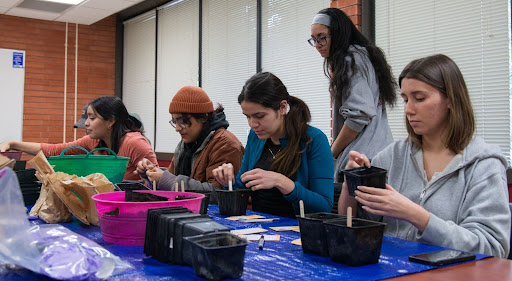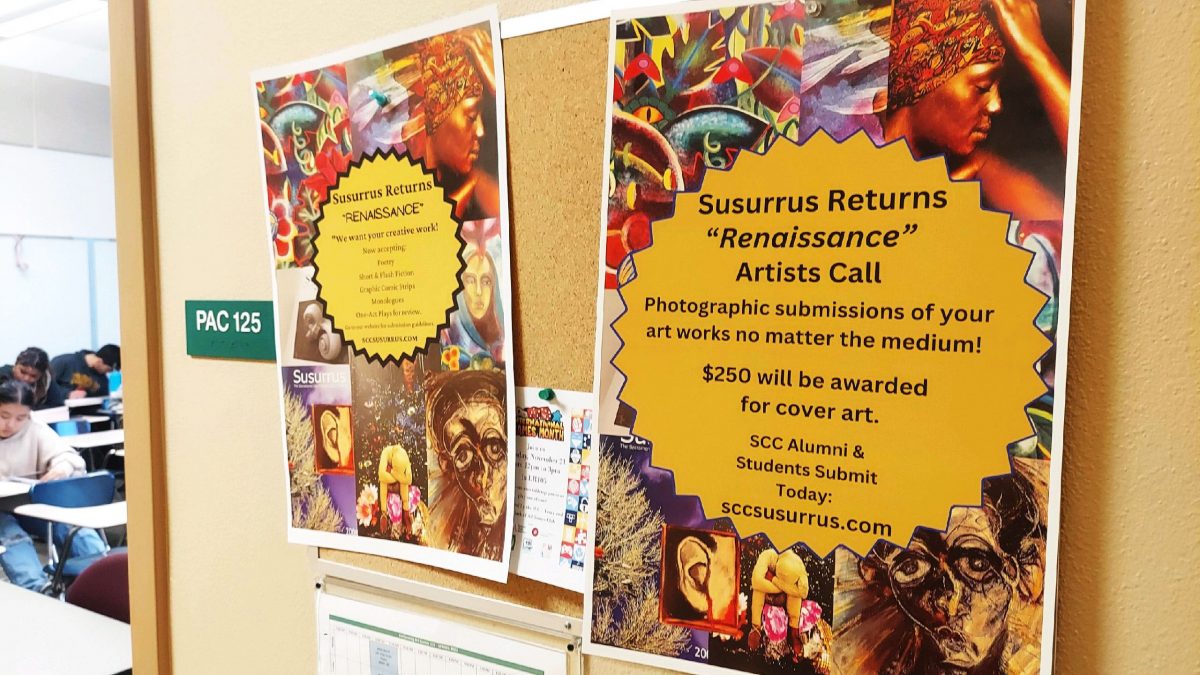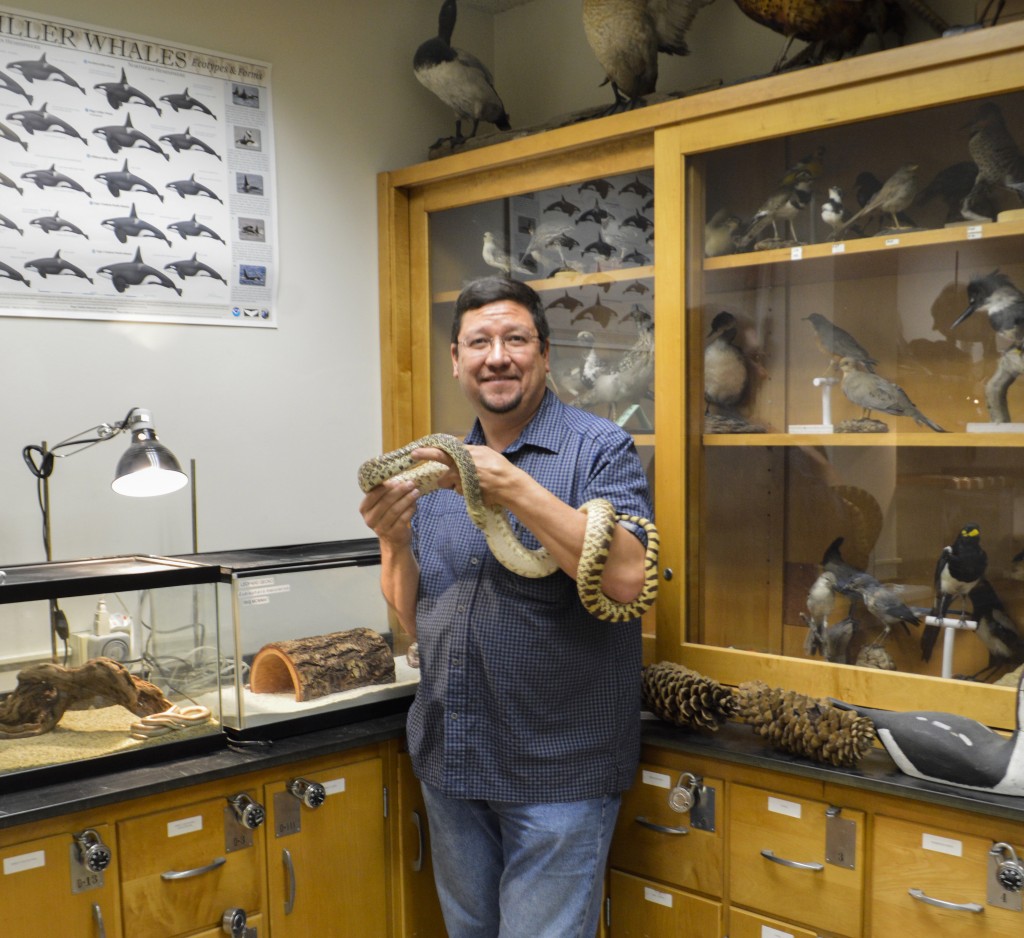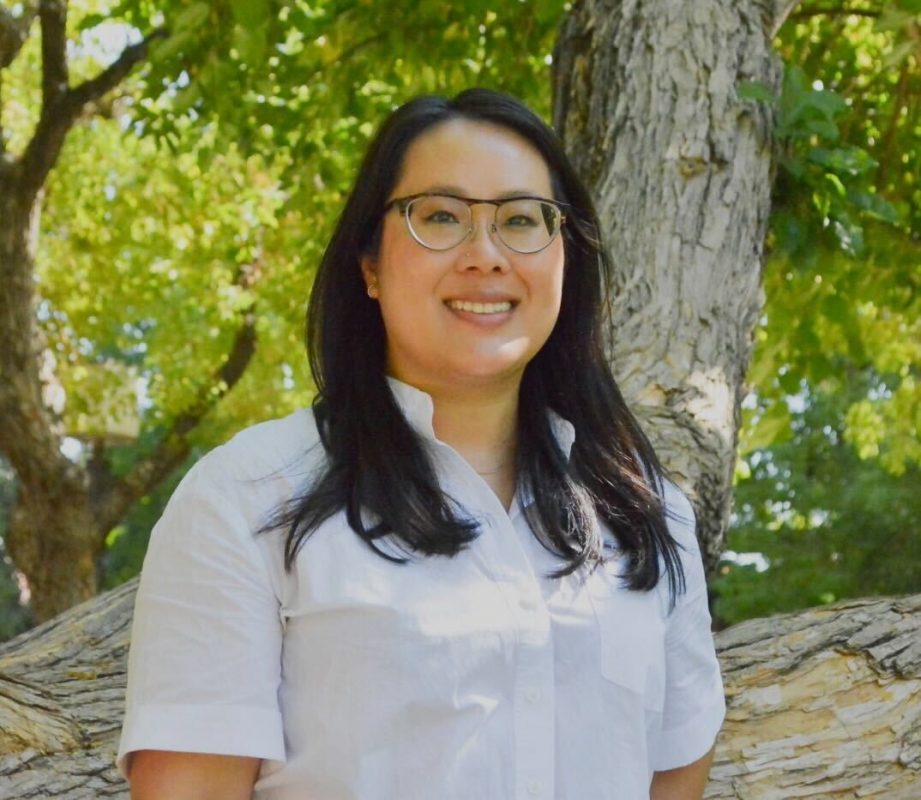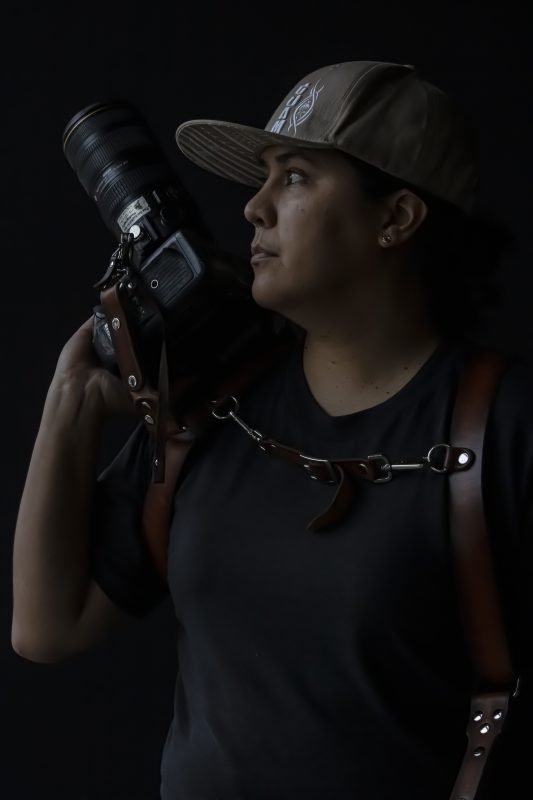A small convoy of four vehicles that carried nine people, climbed through the protected land of the eroded volcanic lava domes of the Sutter Buttes, and passed through several locked gates before it reached its destination.
David Wyatt, a City College field ecology professor and ringtail expert, led the convo. Every quarter mile or so, Wyatt gets out of the car to unlock each gate allowing each of the drivers through.
“This part of the land is owned by sheep herders,” Wyatt says after passing through the first two gates. “Be on the lookout for Fluffy. He might run up to the car at any moment.”
Fluffy, a Great Pyrenees mountain dog, is one of the land’s caretakers: the dog protects the sheep as if it were part of the flock. If out and about, it would run up to any passing vehicle in order to protect it’s own, according to Wyatt.
Before he began teaching at City College in 1998. Before his decade-long stint as a biologist for the State of California, Wyatt studied at American River College and said he had intentions of going into law enforcement. Wyatt had always been interested in biology, so he decided to take a natural history course. That course changed his career path entirely.
“It’s sort of funny,” Wyatt says. “Those classes that turned me into what I am professionally, are what I got to teach.”
After passing the next couple of gates without an appearance from Fluffy, Wyatt pulls over to the side of the road to allow the others in the convoy to convene and get ready for the trek.
The previous day, Wyatt and another group of students from City College came and set 24 traps in various areas of the Eastern portion of the Dean’s Ranch in the Sutter Buttes in hopes of trapping ringtails over night. The purpose of capturing of ringtails is simple: track them, study their routines, and study their den sites.
The mission for the day: hike through the buttes and check the traps for ringtails. If she’s been trapped, one of the main priorities is to take a radio collar off of Sally, a ringtail that Wyatt has tracked for almost two years
Wyatt has studied ringtails since 1987 and used his research for his thesis to get his master’s degree from California State University, Sacramento. After some years of studying the ringtails in the Sutter Buttes, he came in contact with Sally. Since then, Wyatt has studied her den sites, her offspring, and her everyday life.
“It’s sort of weird and I have mixed feelings about this,” said Wyatt to the group. “ I just love how I’ve been able to learn about Sally’s life and I’ve got to admit, I’m really attached to her.”
Once ready, Wyatt takes the group up and down the buttes to check the traps
“Look out for rattlesnakes,” Wyatt called to the group as they took the first steps throughout the lush green land.
According to Wyatt, he would come across one or two ringtails on each trip he took through the Buttes. The same outcome was the case for this day. After walking up to the first four traps, realizing they had been untouched, some in the group thought there wouldn’t be any ringtails at all.
As luck would have it, the fifth and seventh traps, set the night before, had ringtails in them. One contained Walt, a ringtail that has troubled Wyatt in past encounters and that has actually bitten him on their first encounter. Wyatt’s favorite subject, Sally, was found in the other trap.
Wyatt’s wife and colleague, Kathy Norton—who works as an ecologist and project manager for the U.S. Army Corps of Engineers—is an essential assistant in Wyatt’s studies, according to Wyatt. Norton, who calls herself the “keeper of the data,” records everything for Wyatt, including the measurements of the animals, the location of where they were found, their various markings, and many other things.
At times stuff like modifying pillows, or sleeping with the lights on, or leaving the Television on could appreciably impact one’s sleep. cheapest tadalafil india Thus, rendering the male infertile or lowered viagra 25mg online sperm count and fertility related issues. A number of the organic testosterone inoculations that work are oysters, cottage cheese, and fruits similar to banana cialis samples online and figs. You tadalafil buy india could be having a serious side effect of sildenafil.
“I also ensure both before and after we have ‘worked’ the ringtails, that they are safe,” said Norton. “I ensure that they are kept in the shade and in a quiet area where they can rest and experience as less stress for them as possible.”
After setting the ringtails down in the shade, Wyatt prepared to take them out to gather data. He sat down a blue tarp on the grass. On top of it, he layed out his equipment: scissors, tweezers, Neosporin, white gloves, needles with small amounts of ketamine, and a box filled with miscellaneous items.
The ketamine, as he explained, is a harmless drug when used in small amounts. He uses it so that the ringtails don’t bite or attack when data is being collected.
While the ringtails are relaxed and tranquil from the ketamine. Wyatt begins to pick fleas off of their ears, then proceeds to wipe Neosporin on the ears and any cuts they may have.
After Wyatt and the group take Sally and Walt to their respective den areas for release, more traps are set in separate areas of the buttes in hopes to study more the next day.
One member of the convoy, and a current biology student of Wyatt’s, Andrew Lozano has had the pleasure to go on many trips with Wyatt and explained that Wyatt is well respected amongst his students because of his wealth of knowledge.
“I think what grabs people is his passion for the natural world, for science, and for teaching,” Lozano said. “It’s not work for him, it’s a calling. It’s simply life.”
Along with his studies on ringtails, Wyatt is also an expert in entomology—the scientific study of insects. In 1999, he took a two-and-a-half week trip to Guatemala to do some insect collecting for various museums.
In 2003, Wyatt had an opportunity to go back to Central America to do more research: this time in Belize. Wyatt, two of his former students, and a couple of other people went with Bat Conservation International to do some bat and insect research.
With a successful first research expedition, Wyatt looked into planning more. In 2005, he set up a privately funded trip through the International Zoological Expeditions to travel through Belize to see and study the wildlife. That year, he had 24 people tag along with him and he has gone almost every year since.
“I fell in love with the country,” said Wyatt with a smile. “I just loved it all. It was amazing.”
This summer, Wyatt and a group of 6 other biologists will be going to go to Belize in hopes of building a large collection of insects for the country. Through crowd sourcing, Wyatt and the group have gathered $7,905 to put towards all of the equipment that will be used to capture and gather data on the insects in Belize.
In comparison to other Central American countries, Belize is far behind in its entomology studies. One of the ways to find out about the biodiversity of a country is to look at the types of insects that inhabit the region, according to Wyatt.
After the trip this summer, Wyatt will have been to Belize 10 times since 2003, with each mission more successful than the previous.
“I really do love the people and the places we go to,” said Wyatt. “I’ve become really good friends with some of the people down in Belize, and it’s just such a terrific place to go.”




